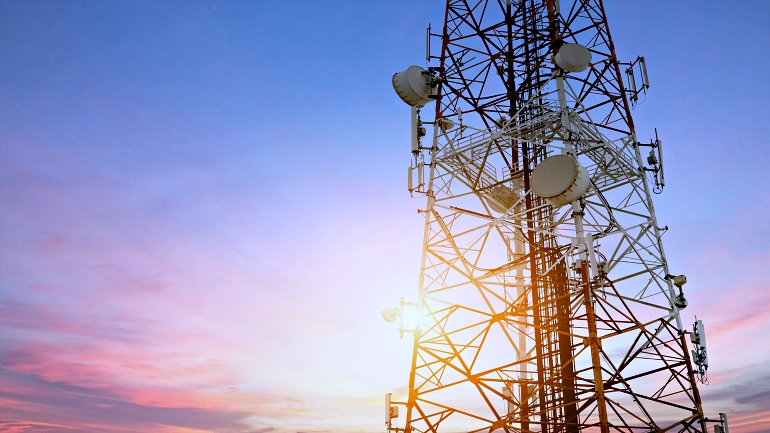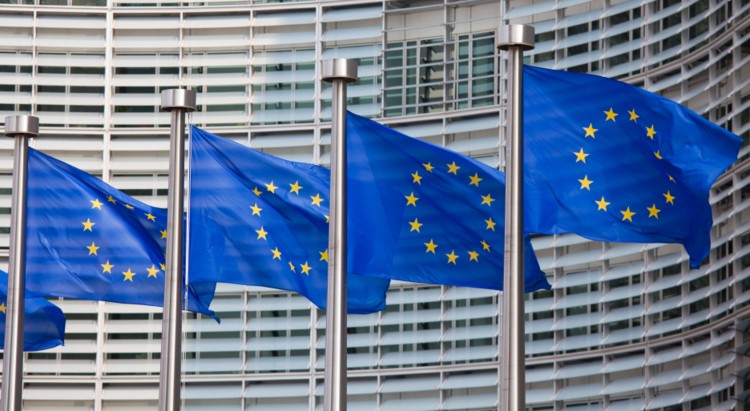While Europe’s increasing $227 billion investment in IoT assures advancements, it particularly underlines the businesses’ focus on operational cost reduction and process optimization. However, economic strains and geopolitical disturbances, like the war in Ukraine and Covid-19, impede this spending surge, especially in Central and Eastern Europe. IDC, nevertheless, forecasts an upturn by 2027, with IoT remaining a viable tool in organization performance enhancement amidst challenges. For telecom providers, these shifting sands offer both opportunities and considerable challenges.
ADI invests €630 million to expand its Limerick operations, tripling fabrication capacity and fostering innovation through the €100 million ADI Catalyst Centre. Meanwhile, energy efficiency becomes a priority for 5G Massive MIMO and future 6G development.
With unparalleled speed, convenience and security, A2P SMS service empowers organizations to reach customers using personalized, targeted messages that drive results and foster brand loyalty. DIDWW, a global provider of premium quality VoIP communications and SIP trunking services to operators and businesses all over the world, has further expanded the coverage of its A2P SMS service with alphanumeric sender IDs by adding 21 European countries. These new additions will enable DIDWW to offer its customers further opportunities to send SMS messages with a guaranteed sender ID that matches their brand name, increasing brand recognition and customer engagement. The service is now available in the following countries: Austria, Denmark, Estonia, Finland, France, Germany, Greece, Iceland, Ireland, Italy, Latvia, Lithuania, Luxembourg, the Netherlands, Portugal, Slovakia, Slovenia, Spain, Sweden, Switzerland and the United Kingdom. The DIDWW architecture can handle large volumes of messages, provide real-time monitoring and ensure high delivery rates.…
The European Commission has approved a joint venture founded by several of Europe’s leading telecommunications providers, including Deutsche Telekom, Orange, Telefónica and Vodafone. The goal of this partnership is to create a revolutionary type of digital advertising platform that will offer a technology solution for digital advertising, while putting privacy first. The holding company, which will be headquartered in Belgium and managed independently, will include a 25% ownership position from each of the major telecom companies. The platform was created with the General Data Protection Regulation (GDPR) of the European Union in mind, and it has already undergone successful testing in Germany. The platform will be made accessible to any operator in Europe. To activate messages from marketers via publishers, consumers must explicitly opt-in to the new platform. The only item communicated is a “pseudo-anonymous digital token” that cannot be reverse-engineered. With improved transparency, protection and supervision over…
The SHEFA-2 underwater cable, which connects the Faroe Islands to Scotland’s mainland through the Shetland and Orkney Islands, suffered damage in two separate instances last week, rendering much of the island without Internet access. In separate events, three critical subsea cables linking Marseille to Lyon, Milan and Barcelona were deliberately severed in the south of France, according to the cable’s operator, affecting internet service for consumers in Europe, Asia and the United States. Cloud service providers worked quickly to repair the backbone infrastructure. According to a report by the cloud security company Zscaler, the unanticipated cable damage caused packet loss and increased latency for websites and apps transiting the damaged pathways. While the French authorities believe sabotage occurred, their Scottish colleagues are still unsure of what actually severed the wires. “We expect it will be fishing vessels that damaged the cable but it is very rare…
Five of Europe’s leading mobile operators – Deutsche Telekom, Orange, Telefónica, Telia and Vodafone – have teamed up to update and launch a new industry-wide Eco Rating system and motivate vendors to minimize the impact that their devices have on the environment. The Eco Rating labelling scheme is designed to supply detailed and accurate information to retailers on the effects that manufacturing, usage, transportation and disposal of smartphones have on the environment. This Eco Rating will encourage operators and customers to rate phones more extensively and underline the need for more sustainable electronic devices. From June 2021, mobile operators will start introducing Eco Rating at points of sale in 24 European countries, including the UK. The labeling system will label phones with scores to show how ecological and environment friendly the appliances are in their lifecycle. The score will be from 0 to 100, the higher the score,…
Vodafone has made a move that could put an end to the global dominance of the three main telecom equipment providers – Huawei, Ericsson and Nokia – by starting trials on open access radio technology in the UK. The company is the first wireless carrier to run European tests of Open Radio Access Networks (OpenRAN), a cellular infrastructure technology that may increase the number of companies supplying telecom network equipment and assist in connecting more of the world’s most remote communities using lower cost systems. In a statement, Vodafone said that “the global supply of telecom network equipment has become concentrated in a small handful of companies over the past few years” and added that a wider choice of suppliers will increase flexibility and innovation, thus helping to address some of the cost challenges of internet services in rural communities. Telecom operators use RAN infrastructure, masts and antennae…
As anticipated, the European Parliament has voted in favour of the European Electronic Communications Code (EECC). The new EU telecoms rules will open the possibilities for faster access to radio spectrum waves and greater investments in high-speed connectivity. They will also ensure better protection and services for end-users of either traditional (calls, SMS) or web-based solutions (Skype, WhatsApp, etc.). Vice-President for the Digital Single Market, Andrus Ansip, and Commissioner for Digital Economy and Society, Mariya Gabriel, made a joint statement, which said, “Today’s vote by the European Parliament is a positive and necessary step towards ensuring that the telecoms sector in the EU is fit for purpose.” “The new telecoms rules that will now be put in place as a result, are an essential building block for Europe’s digital future and a source of new digital rights for European citizens. They are crucial for meeting Europeans’ growing connectivity needs and boosting…
Today, 14th November 2018, the European Parliament is expected to vote on the final approval of the European Electronic Communications Code (EECC), which digs deeper into the EU’s telecom regulatory context. This reform paves the way for new fibre and 5G networks, and also expands the level of consumer protection available to the subscribers of telecom and OTT services. The EU officials first presented the Digital Single Market (DSM) strategy in May 2015, and the following year they introduced a connectivity agenda with proposals for the telecom sector. The DSM strategy contains diverse subjects, including support for cross-border e-commerce, prevention of geo-blocking, expansion on EU policies for the cloud, AI and competitiveness. The key legislation for the DSM must be completed by May 2019. It will presumably assist in reaching the new targets for broadband connectivity set by the Commission for 2025: gigabit speeds for digital businesses and public…
OVHcloud, a pioneer in European cloud services, significantly targets eco-friendly solutions. With Science-Based Targets initiative’s approval, the provider aligns with the Paris Agreement, aspiring to a 73.4% reduction in scope 1 and 2 emissions by 2030.












